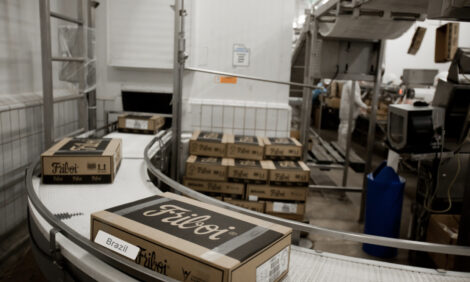



Cattle Controls Change to Eradicate TB
UK - Measures to reduce the risk of bovine tuberculosis (TB) being spread between cattle are to be strengthened as part of the Government’s plan to eradicate the disease in England. From 1 July amendments to the rules on cattle movements will come into force, alongside changes to compensation policy, including reduced payments for owners of TB affected herds with overdue tests.Announcing details of the changes, Agriculture Minister Jim Paice said: “We need to stop the spread of bovine TB, that last year led to the slaughter of 26,000 cattle and could cost the taxpayer a billion pounds over the next ten years unless action is taken. These strengthened measures, alongside work to pilot badger culling, and the development of badger and cattle vaccines, aim to help control the disease and eventually eradicate it.
“Farmers have shown their commitment to tackle this devastating disease which is taking a terrible toll on their communities and businesses.”
Bill Harper, National Beef Association TB Committee Chairman, says: “The news rules cover a wide range of issues and are really going to hurt some businesses. But unlike the changes to the restocking rules in late January, these have been announced in advance and at least farmers have a window of opportunity to prepare themselves and make changes if appropriate or necessary.”
The changes affect England only and involve some new rules, as well as tightening up/clarification of others. They fall broadly into three categories – compensation, pre-movement testing and CTS Links and SOAs.
Changes to cattle controls were announced as part of the package of measures to tackle bovine TB in July 2011. The final details of the changes to be introduced on 1 July include:
- Removing the exemption allowing cattle held on a farm for under 30 days to be moved without being tested, in order to reduce the risk of untested cattle spreading bovine TB when they are moved between different holdings;
- Removing the pre-movement testing exemption for movements within ‘Sole Occupancy Authorities’ that have holdings in high and low risk TB areas;
- Pre-movement testing for cattle moved from higher TB risk herds to agricultural shows where cattle are housed or are held there for more than 24 hours – to reduce the risk of untested cattle, from higher TB risk herds, spreading the disease through close contact with other cattle; and
- Discouraging late testing of cattle for bovine TB to reduce disease spread risks for all cattle, by reducing compensation for owners of TB affected herds if tests are overdue by more than 60 days.
To further reduce the risk of TB spreading we will tighten controls around linked premises. Farmers likely to be affected will be contacted, and from 1 July:
- No new Sole Occupancy Authorities will be approved; and
- No new Cattle Tracing System links between holdings in high and low TB risk areas will be approved, with existing links between high and low risk areas being removed on a phased basis.
The wide range of changes means some business practices will be affected more than others, which is why the NBA is urging farmers to look at the detail and assess if it will specifically affect them or if exemptions apply to their situation.
Mr Harper says: “I know some farmers who will be hugely alarmed by the cuts to compensation rates for overdue tests, when they have legitimately sought an extension in the past for ‘intelligent testing’. This is where they ask to delay their test until cattle are housed and contact with TB-infected wildlife is limited, because it is more sensible to delay a July/August test to November than cattle picking up infection just after a summer-timed annual test and potentially not being recognised until 12 months later.
“But we have been reassured by Defra that the option is still there to discuss re-arranging a routine test date with your local AHVLA office, who will take into consideration all the circumstances. This is just one example of why farmers need to look at the forthcoming changes now, to make sure they understand them and adapt accordingly.
“It’s not going to be easy, but it may well be a case of ‘forewarned is forearmed’ for some producers. Certainly those operating SOAs in areas of different risk will be hit hard, so they need to prepare now for the fact they are going to have to pre-movement test in the future. They have our sympathy that the rules affect them so directly and painfully, but Defra is anxious to stop TB moving to low risk areas.”
TheCattleSite News Desk


